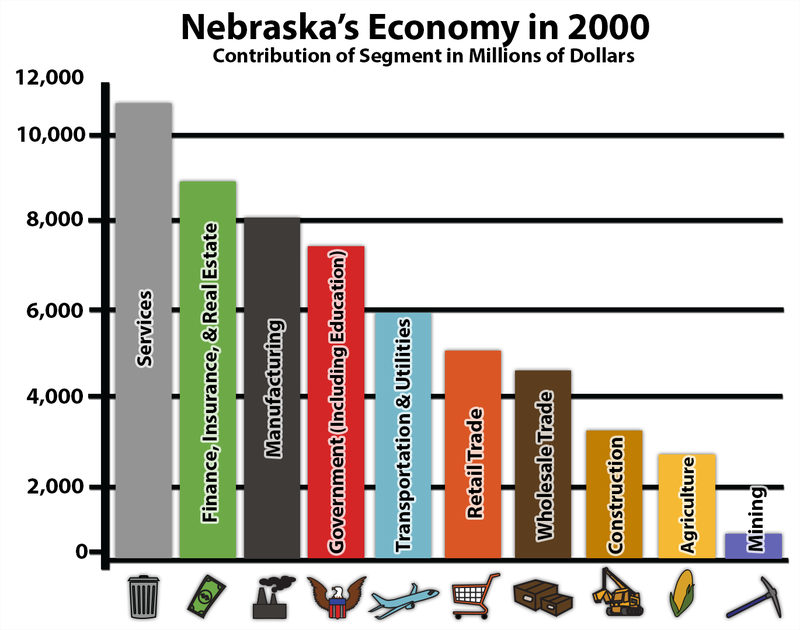
In some ways, Nebraska is no longer an agricultural state. There are now fewer farmers in the state. They produce less of the state’s goods and services. You can see that fact in the numbers.

To a certain extent, the numbers may be misleading because agricultural related companies may be included in other market segments. For example, Nebraska has a healthy industries manufacturing agricultural and garden equipment. The state has also developed new biotechnology and veterinary medicine companies. And Nebraska has always been a leader in the processing of food products. All of these industries are included in other categories, even though they are related to agriculture.
But, as agriculture changes, state leaders are searching for ways to diversify the economy. Many Nebraska communities have turned to new industries — including telecommunications and computer technology — to develop new markets that can transcend the limitations of vast spaces on the plains.
Recent planning efforts have identified several new target industries. Some of these new industries are related to Nebraska’s traditional economy.
Some of these target industries are part of a new economy.
What sets these new economic developments apart from the old economy is that most of the time it doesn’t matter where you’re located. What’s most important is knowledge and education, as well as access to telecommunication networks. Nebraska has built a strong educational system and is developing the communication network. The state is actually ahead of many other states in the percentage of schools and communities connected to the Internet. But there is more yet to be done.
In addition, agriculture itself has been changed by new technology. Farmers are learning to use computers to determine everything from how much fertilizer to apply to cropland to how to seek out the best markets in which to sell their products. One of the major suppliers of data to farmers is based in Omaha. Farmers have always worked with land, labor, capital, and management economic factors; they are now adding computer technology, which will greatly add to their ability to acquire the knowledge, needed to most effectively utilize the factors of production.